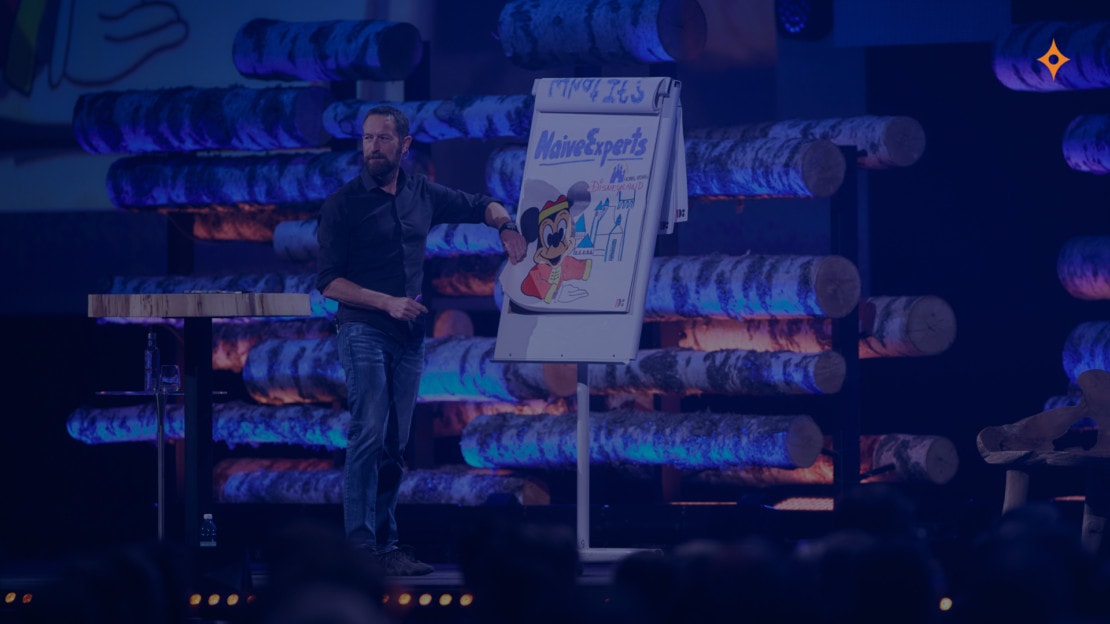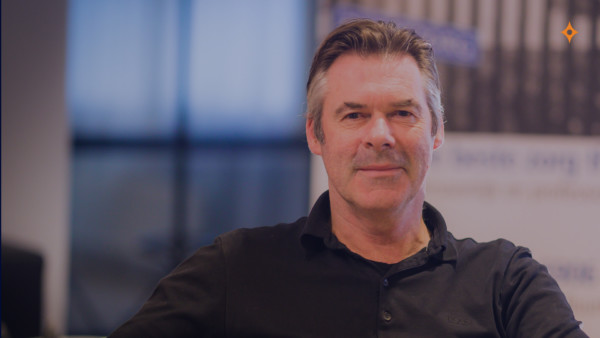12Apr2023
Innovation is always important, but it is especially important in today’s rapidly changing world. Innovation is the key for companies to adapt to change and overcome the challenges it brings. To increase the chances of your organization surviving and even thriving, you should take innovation seriously. Luckily, we have had some innovation experts at our events over the years. We gathered 6 of our favorite insights from past (and future) speakers to help you improve your innovation skills. Here they are!
We are all born creative
Duncan Wardle’s key message in his 2022 keynote was that we are all creative because we are born that way. But as we grow up, we simply forget to use our creativity or that we even have it in the first place. In school, we get used to conforming to the norms, and thinking outside the box is not encouraged. Duncan says education is the number one killer of creativity.
“You were told to color in between the lines just before you were told to stop asking “why” because there is only one right answer.”
There isn’t much room for creativity at school, so we stop practicing it. But that doesn’t mean it’s lost, we just need to awaken our innovative side! In his 2022 speech, Duncan gave us 5 steps towards waking up your innovative side. The first one is to question the rules. Read the summary of Duncan’s keynote here.
You don’t get to cherry-pick the winning ideas
One of the world’s leading innovation experts, Alex Osterwalder, underlined that it’s crucial to understand that you can’t decide which ideas are the winners beforehand. You cannot predict the future.
“You don’t pick the winners, they will emerge.”
The best way to approach innovation is to create a funnel and invest small bets on multiple experiments and projects. Then, based on what works, you can pick which projects to invest more in. This is a safer way to find ideas worth investing in and scaling without making big, risky bets. You can check out more of Alex’s innovation insights here.
Innovation requires comfort
In a recent interview, the founder of Buurtzorg, Jos de Blok, reminded us that innovation cannot be forced.
“We don’t say, “Now you’re going to innovate” or “Now we put you in a group of innovators.” No, that doesn’t help. So we say, be yourself, and if you have a good idea, say it now, tell it to your colleagues, tell it to me or whoever you think it’s interesting to tell to.”
At Buurtzorg, the Dutch neighborhood nursing organization that has transformed home-based healthcare in the Netherlands, innovation is made as easy as possible. And the conditions for it are in place. Nurses are encouraged to share their ideas and implement their innovations with a low threshold. Jos is of the opinion that too much structure and bureaucracy is a certain innovation killer, and so Buurtzorg has minimized them.
“Informal ways of working give people the feeling that they can be authentic, and if you can be yourself, then creativity comes easier.”
We will hear more of Jos’s experience and insight later this year at Nordic Business Forum 2023, in his speech How to Create a Striving Organization without Administrative Burden. In the meantime, you can check out the interview we did with him here.
Diversity is key to innovation
At an event in 2020, Carla Harris emphasized the importance of innovation for surviving times of crisis. And for innovation, you need diversity.
“Innovation is born from ideas. Ideas are born from perspectives. Perspectives are born from experiences. And if you need experiences, you need diversity.”
If you have a room full of people who all have the same background, you are likely to have a room full of people who all think the same way. That is not very fruitful ground for new ideas to emerge. Read more of Carla’s leadership insights here.
Embrace curiosity
Francesca Gino has dedicated much of her career to researching rebels and rule-breakers. She believes rebels are the masters of innovation, and we need them to instigate change. One of her tips for anyone wishing to awaken their inner rebel and become more innovative was to get curious.
“Curiosity is a key driver of innovation. So, be open-minded, ask questions, and explore new ideas and perspectives.”
After all, innovation needs direction, and to find that direction, you need to first be curious about something. Read our interview with Francesca and learn more about her ideas on rebels here. Francesca is also coming to Nordic Business Forum 2023 this September to share more of her expert insight into Mastering Innovation and Reinvention.
Not all failures are equal
Failure has been a hot topic, and some companies go as far as to say they encourage failure. While it’s true that failing shouldn’t be something to be afraid of and that the fear of failing can block creativity and innovation, Amy Edmondson argues that not all failures are equal.
“Failure is not all bad …but failure is not all good either.”
Companies shouldn’t just encourage any type of failure but encourage people to fail in an intelligent way. Amy explained the three different types of failure (simple, complex, and intelligent) and stressed the importance of distinguishing between the three. An intelligent failure is something that has a significant opportunity, low risk, and an informative outcome. Read more about intelligent failure and the other types of failure in this blog post.


